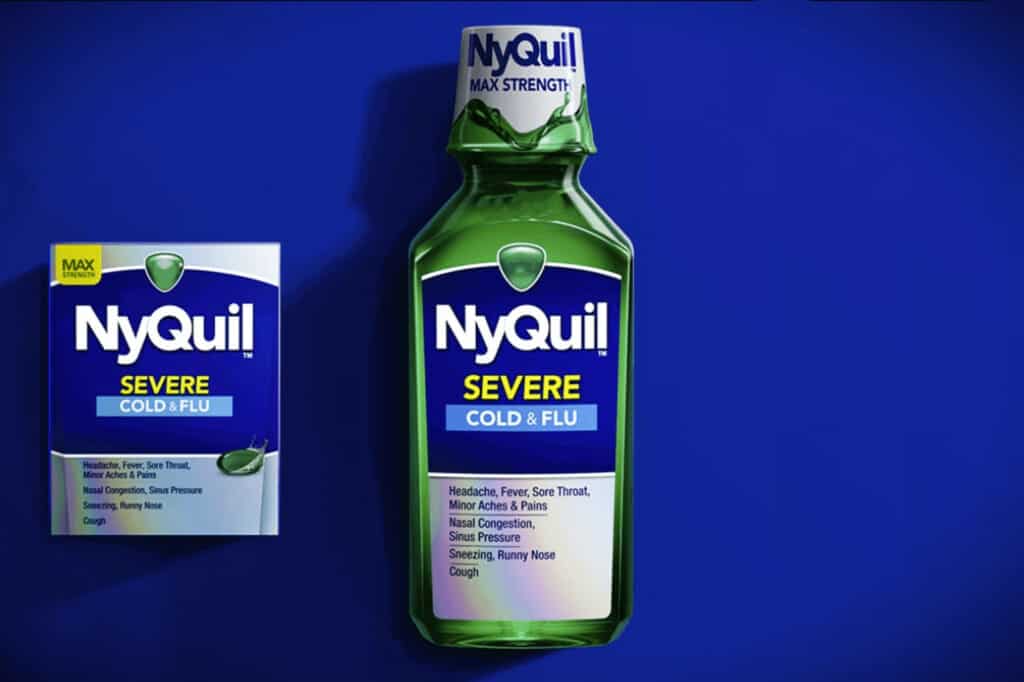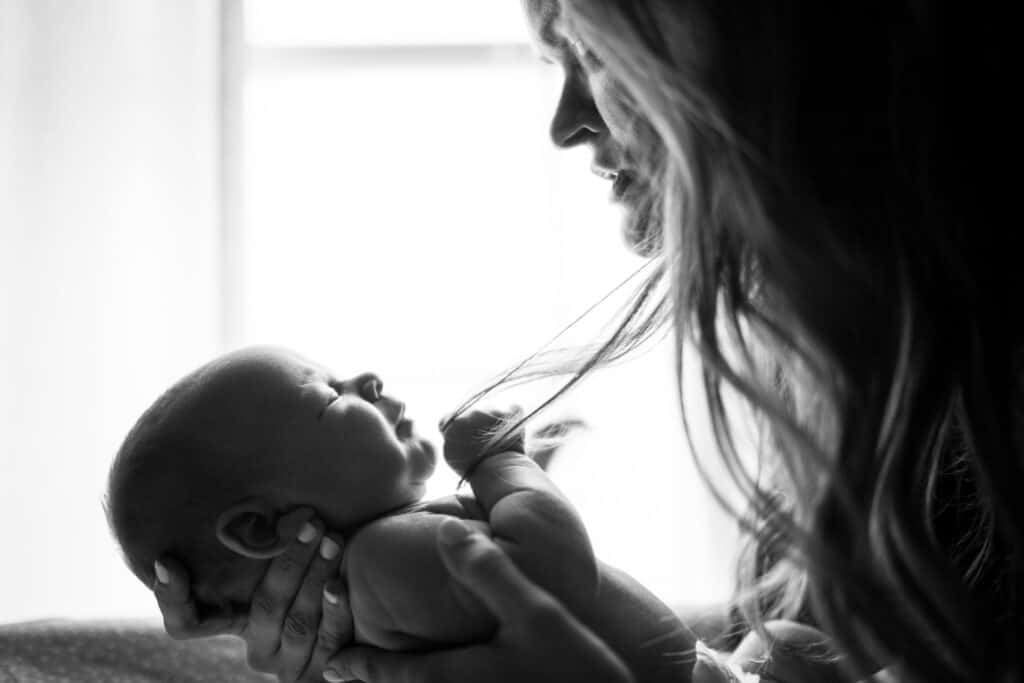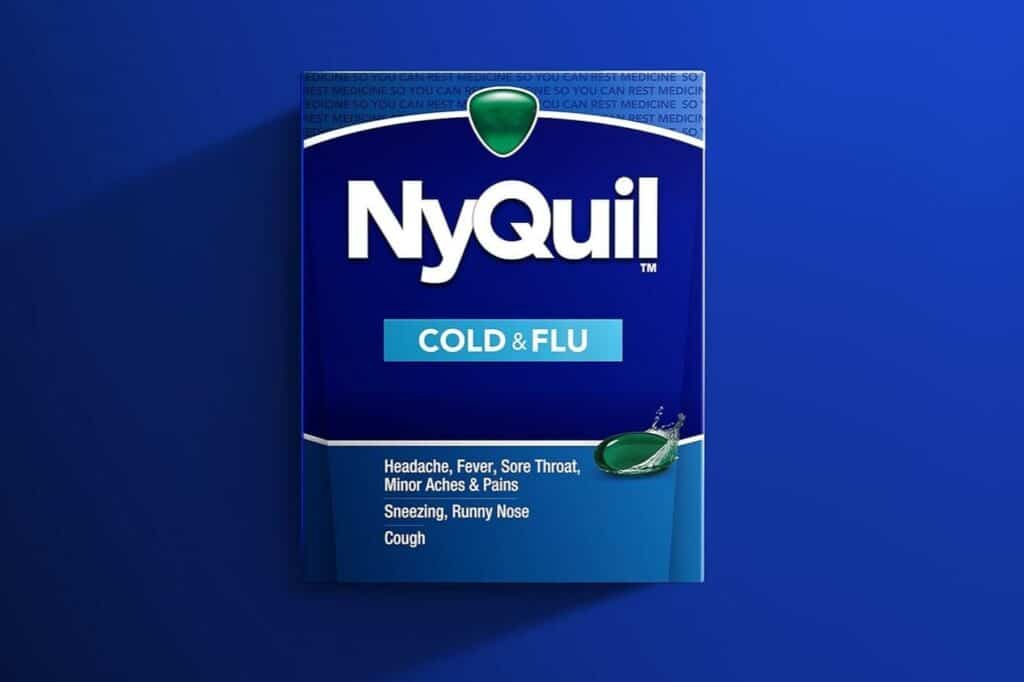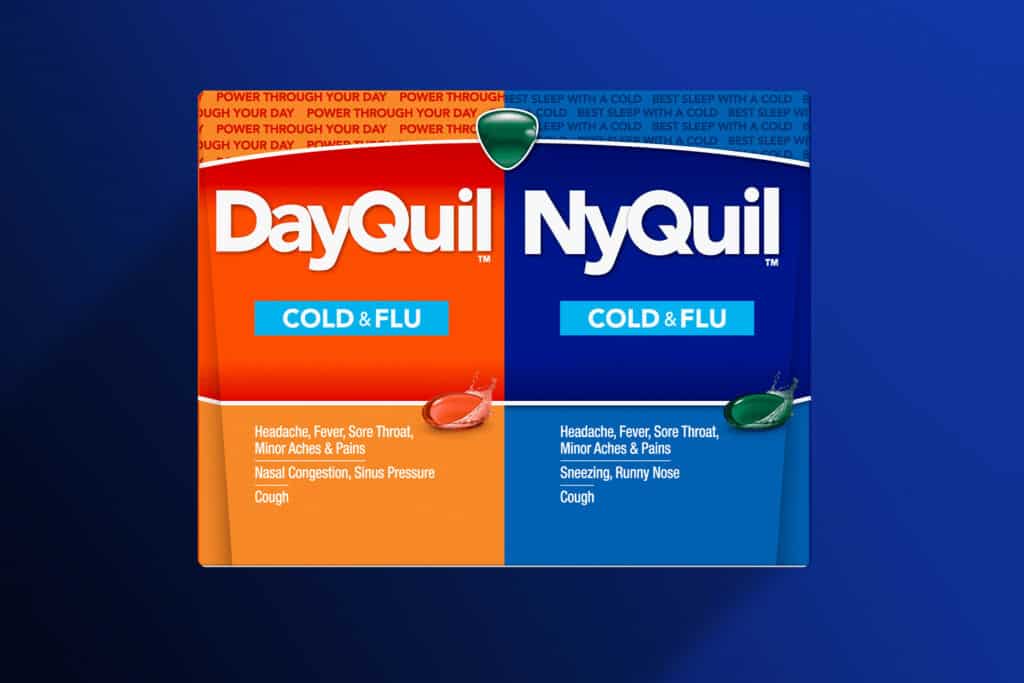Nyquil is a popular over-the-counter medication used to treat cold and flu symptoms. It contains several active ingredients, including acetaminophen, dextromethorphan, and doxylamine succinate, which can provide relief from coughing, fever, and congestion. However, NyQuil is not recommended for children under the age of six, and parents should be cautious when administering it to young children.
So, what happens if a 2 year old drinks NyQuil? The active ingredients in Nyquil can cause drowsiness, confusion, and respiratory depression, which can be life-threatening. Parents should seek medical attention immediately if they suspect their child has ingested Nyquil or any other medication without their knowledge or supervision.
Key Takeaways
- Nyquil is not recommended for children under the age of six.
- The active ingredients in Nyquil can cause serious side effects in young children, including drowsiness, confusion, and respiratory depression.
- Parents should seek medical attention immediately if they suspect their child has ingested Nyquil or any other medication without their knowledge or supervision.
Understanding Nyquil
Nyquil is an over-the-counter medicine that is commonly used to relieve symptoms of cold and flu. It is a liquid product that is produced by Vicks, a well-known brand in the healthcare industry. Nyquil is a combination of several active ingredients, including acetaminophen, dextromethorphan, and doxylamine succinate.

Acetaminophen is a pain reliever and fever reducer, while dextromethorphan is a cough suppressant. Doxylamine succinate is an antihistamine that helps to relieve symptoms such as sneezing, runny nose, and watery eyes. Nyquil also contains alcohol, which acts as a sedative and helps to induce sleep.
It is important to note that Nyquil is not intended for use in children under the age of 12, and should never be given to a child under the age of 2 without the advice of a doctor. Ingesting Nyquil can have serious consequences in young children, including seizures, respiratory depression, and even death.
If a 2 year old accidentally ingests Nyquil, it is important to seek immediate medical attention. The child may require hospitalization and treatment to prevent further complications. It is also important to keep all medications, including over-the-counter products like Nyquil, out of reach of children to prevent accidental ingestion.
The Impact of Nyquil on Children
Nyquil is a popular over-the-counter medication used to relieve cold and flu symptoms in adults. However, it is not recommended for children under the age of 12. Nyquil contains a combination of ingredients, including acetaminophen, dextromethorphan, and doxylamine succinate, which can be harmful to young children.
The dosage of Nyquil is based on weight, and children under the age of 12 are typically too small to safely handle the medication. Ingesting Nyquil can cause a range of side effects in children, including drowsiness, confusion, nausea, vomiting, and even seizures.
If a child under the age of 12 ingests Nyquil, it is important to seek medical attention immediately. The child may need to be hospitalized for observation and treatment.
In addition to the potential side effects, Nyquil can also be addictive if taken regularly. Children who are given Nyquil regularly may develop a dependency on the medication, which can be difficult to break.
Overall, it is important to keep Nyquil and other medications out of reach of children. Parents should always read the labels and follow the recommended dosages for their children. If a child accidentally ingests Nyquil, seek medical attention immediately.
Active Ingredients in Nyquil
Nyquil is a popular over-the-counter medication used to treat symptoms of cold and flu. It is not recommended for children under the age of 6, and it is especially dangerous for toddlers and infants. If a 2-year-old drinks Nyquil, it can cause serious harm or even death. In this section, we will discuss the active ingredients in Nyquil and their potential effects on the body.

1. Dextromethorphan
Dextromethorphan is a cough suppressant that is commonly used in cough and cold medications. It works by suppressing the cough reflex in the brain. In high doses, it can cause hallucinations, confusion, and even coma. In children, it can cause agitation, irritability, and restlessness.
2. Acetaminophen
Acetaminophen is a pain reliever and fever reducer that is commonly used in over-the-counter medications. It is safe in recommended doses, but in high doses, it can cause liver damage and even liver failure. In children, it can cause nausea, vomiting, and abdominal pain.
3. Doxylamine
Doxylamine is an antihistamine that is commonly used in sleep aids and cold medications. It works by blocking histamine receptors in the brain, which can cause drowsiness and sedation. In high doses, it can cause confusion, agitation, and seizures. In children, it can cause drowsiness, dry mouth, and constipation.
4. Alcohol
Nyquil contains a small amount of alcohol, which can enhance the sedative effects of the other ingredients. In high doses, it can cause respiratory depression, coma, and even death. In children, it can cause dizziness, confusion, and impaired coordination.
5. Antihistamine
Nyquil contains an antihistamine, which can help to relieve symptoms of allergies and colds. It works by blocking histamine receptors in the body, which can cause sneezing, runny nose, and itchy eyes. In high doses, it can cause drowsiness, dry mouth, and blurred vision. In children, it can cause restlessness, irritability, and nervousness.
6. Cough Suppressant
Nyquil contains a cough suppressant, which can help to relieve coughing. It works by suppressing the cough reflex in the brain. In high doses, it can cause hallucinations, confusion, and even coma. In children, it can cause agitation, irritability, and restlessness.
7. Decongestant
Nyquil contains a decongestant, which can help to relieve nasal congestion. It works by constricting the blood vessels in the nasal passages, which can reduce swelling and congestion. In high doses, it can cause hypertension, rapid heartbeat, and anxiety. In children, it can cause irritability, restlessness, and difficulty sleeping.
8. Inactive Ingredients
Nyquil also contains a number of inactive ingredients, such as flavorings, sweeteners, and preservatives. These ingredients are generally considered safe, but they can cause allergic reactions in some people. In children, they can cause nausea, vomiting, and diarrhea.
Potential Symptoms After Consumption
If a 2-year-old child accidentally ingests Nyquil, they may experience a range of symptoms depending on the amount consumed. The following are some of the potential symptoms that may occur after consumption:

- Drowsiness: Nyquil is a sedative and can cause drowsiness in both adults and children. If a child consumes Nyquil, they may become excessively sleepy or lethargic.
- Dizziness: Dizziness is another common side effect of Nyquil. Children who consume Nyquil may experience feelings of lightheadedness or unsteadiness.
- Vomiting: Nyquil can irritate the stomach lining, causing nausea and vomiting. If a child ingests Nyquil, they may experience these symptoms.
- Seizures: In rare cases, Nyquil can cause seizures in children. If a child experiences a seizure after consuming Nyquil, seek medical attention immediately.
- Headache: Some children may experience headaches after consuming Nyquil. This may be due to the medication’s effects on blood vessels in the brain.
- Allergic reactions: Nyquil contains several active ingredients that can cause allergic reactions in some children. Symptoms of an allergic reaction may include hives, swelling, and trouble breathing.
- Confusion and hallucinations: In rare cases, Nyquil can cause confusion and hallucinations in children. If a child experiences these symptoms after consuming Nyquil, seek medical attention immediately.
It is important to note that these symptoms may not occur in all children who consume Nyquil, and the severity of symptoms can vary depending on the amount ingested. If you suspect that your child has consumed Nyquil, seek medical attention immediately.
Nyquil and Overdose Risk
Nyquil is an over-the-counter medication commonly used to treat cold and flu symptoms. It contains a combination of ingredients, including acetaminophen, dextromethorphan, and doxylamine succinate. While Nyquil can be effective in treating symptoms, it can also be dangerous if taken in excessive amounts.

Overdose is a risk associated with taking Nyquil. The medication contains acetaminophen, which can cause liver damage if taken in large doses. Liver damage can lead to liver disease and, in severe cases, death. It is important to follow the recommended dosage instructions and not exceed the maximum daily dose.
In addition to liver damage, taking too much Nyquil can also lead to other serious health problems. An overdose can cause loss of consciousness, convulsions, and other symptoms that require immediate medical attention. It is important to seek medical help right away if someone has taken too much Nyquil or is experiencing any adverse reactions to the medication.
Overall, while Nyquil can be an effective medication for treating cold and flu symptoms, it is important to use it responsibly and follow the recommended dosage instructions. Taking too much Nyquil can lead to serious health problems, including liver damage and overdose. If you or someone you know has taken too much Nyquil or is experiencing any adverse reactions to the medication, seek medical attention immediately.
Treatment and Measures to Take
If a 2-year-old child ingests Nyquil, immediate medical attention is crucial. The first step is to call 911 or take the child to the nearest emergency room. The child will be evaluated by a physician who will determine the best course of action based on the child’s symptoms and medical history.
The treatment for Nyquil ingestion may vary depending on the severity of the symptoms. In some cases, the child may need to be hospitalized for observation and treatment. The physician may prescribe medication to counteract the effects of the Nyquil. It is important to follow the physician’s instructions for medication dosages and administration.
In addition to seeking medical attention, parents or caregivers should also contact the Poison Control Center for guidance. The Poison Control Center can provide information on what to do in case of an emergency and can also offer advice on how to prevent accidental ingestion of medication in the future.
Parents or caregivers should also inform the child’s pharmacist and physician of the incident. This will help ensure that the child is not prescribed any medication that may interact with Nyquil or cause similar symptoms.
It is important to note that Nyquil is not intended for use in children under the age of 6. Parents or caregivers should always read the label and follow the dosage instructions carefully when administering medication to children. If in doubt, seek medical advice before giving any medication to a child.
Safe Dosage Instructions
When administering Nyquil to a 2-year-old, it is important to follow safe dosage instructions to avoid any adverse effects. The recommended dosage for children aged 2 to 6 years is 10 mL every 6 to 8 hours, not to exceed 4 doses in 24 hours. It is crucial to use a measuring device such as a spoon or cup to ensure the correct dosage is given.
Using an appropriate measuring device is important to avoid overdosing or underdosing the child. It is recommended to use the measuring cup provided with the medication or a calibrated measuring spoon to ensure accuracy. Using household spoons can lead to incorrect dosages and may cause harm to the child.
If the medication is in extended-release capsules, it is important to not crush or chew the capsules as this can cause too much of the medication to be released at once. The capsules should be swallowed whole with a glass of water.
It is also important to read the label carefully and follow all instructions provided by the healthcare provider or pharmacist. If the child experiences any adverse effects or symptoms, it is important to seek medical attention immediately.
In summary, when administering Nyquil to a 2-year-old, it is important to follow safe dosage instructions and use an appropriate measuring device. It is also important to not crush or chew extended-release capsules and seek medical attention if any adverse effects or symptoms occur.
Nyquil and Common Illnesses
Nyquil is an over-the-counter medication used to treat various symptoms of common illnesses such as cough, cold, flu, runny nose, congestion, bronchitis, asthma, stuffy nose, bronchial irritation, common cold, hay fever, sinusitis, watery eyes, and itchy eyes. It is a combination of different active ingredients that work together to alleviate symptoms.

The active ingredients in Nyquil are acetaminophen, dextromethorphan, and doxylamine succinate. Acetaminophen is a pain reliever and fever reducer. Dextromethorphan is a cough suppressant that works by blocking the cough reflex. Doxylamine succinate is an antihistamine that helps relieve sneezing, runny nose, and itchy eyes.
Nyquil is not recommended for children under the age of 6, and it should be used with caution in children under the age of 12. If a 2-year-old drinks Nyquil, it can cause serious side effects such as breathing difficulties, seizures, and even death.
It is important to keep all medications, including Nyquil, out of the reach of children. If a child accidentally ingests Nyquil, seek medical attention immediately.
Potential Drug Interactions
Nyquil is a combination of acetaminophen, dextromethorphan, and doxylamine succinate. Each of these ingredients can interact with other drugs and medical conditions. It is important to be aware of potential drug interactions before giving Nyquil to a 2-year-old.
Drug interactions can occur when two or more drugs interact with each other and cause unexpected side effects. For example, taking Nyquil with other drugs that contain acetaminophen can increase the risk of liver damage. It is important to check the labels of all medications before giving them to a child.
Individuals with high blood pressure, overactive thyroid, enlarged prostate, or urinary retention should also be cautious when taking Nyquil. The antihistamine in Nyquil can cause drowsiness and dry mouth, which can worsen these conditions.
If a child has a medical condition or is taking other medications, it is important to consult with a doctor before giving them Nyquil. The doctor can advise on whether Nyquil is safe for the child and recommend alternative treatments if necessary.
In summary, Nyquil can interact with other drugs and medical conditions, which can lead to unexpected side effects. It is important to be aware of these potential interactions before giving Nyquil to a 2-year-old.
Also, do not miss to check out our similar posts:
- Can a 6 Year Old Take Tums: Dosage and Safety Guidelines
- Can 11-Year Olds Drink Gfuel? A Clear and Neutral Answer
Frequently Asked Questions
Is it dangerous for a 2 year old to drink NyQuil?
Yes, it can be very dangerous for a 2 year old to drink NyQuil. NyQuil contains several active ingredients that can be harmful to young children, including acetaminophen and dextromethorphan.
Can NyQuil make a toddler sleepy?
Yes, NyQuil can make a toddler sleepy. One of the active ingredients in NyQuil is diphenhydramine, which is an antihistamine that can cause drowsiness.
What happens if a child drinks NyQuil?
If a child drinks NyQuil, they may experience symptoms such as nausea, vomiting, dizziness, drowsiness, and confusion. In severe cases, they may experience seizures or respiratory depression, which can be life-threatening.
What are the ingredients in Children’s NyQuil?
Children’s NyQuil contains acetaminophen, dextromethorphan, and diphenhydramine. It is important to note that the dosages of these ingredients are specifically formulated for children.
What is the recommended dosage of NyQuil for a 3 year old?
There is no recommended dosage of NyQuil for a 3 year old. NyQuil should not be given to children under the age of 6 without the advice of a doctor.
Is it safe to give NyQuil to a 12 year old?
It may be safe to give NyQuil to a 12 year old, but it is important to follow the recommended dosage and to consult with a doctor before giving any medication to a child. Children’s NyQuil is specifically formulated for children ages 6 to 11.

Iesha is a loving mother of 2 beautiful children. She’s an active parent who enjoys indoor and outdoor adventures with her family. Her mission is to share practical and realistic parenting advice to help the parenting community becoming stronger.
